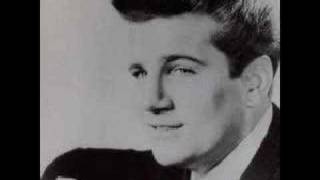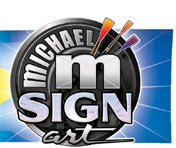| You are not logged in. | login to customize your own personal play list |
“The Train Kept a Rollin’” by Johnny Burnette and the Rock ’N’ Roll Trio |
| United States Federal Trade Commission forbids anyone under 13 from viewing these music videos! |
| You are not logged in. | login to customize your own personal play list |
“The Train Kept a Rollin’” by Johnny Burnette and the Rock ’N’ Roll Trio |
| United States Federal Trade Commission forbids anyone under 13 from viewing these music videos! |
 |
 |
 |
 |
You need Flash player 8+ and JavaScript enabled to view this video.
|
 |
 |
   |
 |

song info “The Train Kept a Rollin’” by Johnny Burnette and the Rock ’N’ Roll Trio is a rockabilly song. Song Title: The Train Kept A Rollin’Artist: Johnny Burnette and the Rock ’N’ Roll Trio Album: Johnny Burnette and the Rock ’n’ Roll Trio Genre: rockabilly oldies Lead Vocals: Johnny Burnette Backing Vocals: Anita Kerr Singers Guitar: Johnny Burnette, Paul Burlison (possibly Nashville session guitarist Grady Martin) Piano: Owen Bradley Bass: Dorsey Burnette Drums: Buddy Harman Jr. Producer: Owen Bradley Recorded: Owen Bradley studio, Nashville, Tennessee, July 2, 1956 Released: August 1956 Format: 10" 78 rpm and 7" 45 rpm records B-side: Honey Hush Label: Coral (61719) Number of listens: 27038 Current rank: 203 (updated weekly) Highest rank: 188 (play the video all the way through to register a vote for this song) Translations courtesy of Apple and Google. |
||
 |
Song Title: Train Kept A-Rollin’
Artist: Johnny Burnette and the Rock ’n’ Roll Trio
Album: Johnny Burnette and the Rock ’n’ Roll Trio
genre: rock
release date: August 1956
label: Coral

|
composer/lyricist:
producer: Owen Bradley
engineer/mixer:
lead vocals: Johnny Burnette
guitar: Johnny Burnette, Paul Burlison
bass: Dorsey Burnette
drums: Buddy Harman Jr
piano: Owen Bradley
backing vocals: Anita Kerr Singers
Summary quotation from Wikipedia:
In 1956, Johnny Burnette and the Rock and Roll Trio reworked Tiny Bradshaw’s 1951 jump blues song using a rockabilly/early rock and roll arrangement. The Trio’s version features guitar lines in what many historians consider to be the first recorded example of intentionally distorted guitar in rock music, although blues guitarists, such as Willie Johnson and Pat Hare, had recorded with the same effect years earlier.
The Trio’s guitarist, Paul Burlison, explained that he noticed the sound after accidentally dropping his amplifier, which dislodged a power tube and later, “whenever I wanted to get that sound, I’d just reach back and loosen that tube”. He utilized this effect with the song’s main instrumental feature, a “repeated three-note minor key [guitar] riff”. Burlison recounted how he came up with the signature riff:“[I was] in the dressing room with the loose tube. Johnny [Burnett] was playing an E chord and I was playing in a G position but I’d take my fingers off and play in octaves [using the thumb and middle or index finger]. He wasn’t singing ‘The Train Kept A-Rollin’, it was another song, and I got to doing doom diddle doom daddle doom daddle … [Later] I told Owen Bradley about it at the Barn, where we cut the stuff, and he said, ‘let me hear it’. So I started doing it and he said, ‘Well, let’s do it’.”Later, authors Vince Gordon and Peter DijkemaIt argue that the guitar sound on “The Train Kept A-Rollin’” could be created with distortion commonly achievable with a highly-overdriven early 1950s guitar amplifier. They point out that in the recording, the higher treble strings sound relatively clean, with the low E string having the most distortion; with a tube malfunction, all strings would be distorted more or less to an equal degree. The authors add that this difference in sound could be achieved with the pole piece for the low E string raised higher than the rest, thereby allowing it to overload the amplifier more than the treble strings. They also argue that Nashville session guitarist Grady Martin provided the guitar parts for the Trio’s recording; they base this on stylistic and technical qualities, since, at the time, Martin was a more accomplished player than Burlison, and these qualities are apparent in his work on other recordings.
—from Wikipedia (the Wikipedia:Text of Creative Commons Attribution-ShareAlike 3.0 Unported License applies to Wikipedia’s block of text and possible accompanying picture, along with any alterations, transformations, and/or building upon Wikipedia’s original text that ThisSideofSanity.com applied to this block of text)
The Americans with Disabilities Act (ADA) and U.S. Government Section 508 of the Rehabilitation Act of 1973 require that web sites provide transcripts of audio for the deaf.
We will be adding lyrics to all songs as fast as we can. Please be patient.
Nuray: I love Johnny Burnette and the Rock ’N’ Roll Trio.
To submit a comment, use the form below:
Please use the form (with the delay for a human to inspect it) because this website is attacked by more than 20 spam attempts per minute. The only way to keep you safe from the spam is by having human review.
 |
  |
|
If you spot an error in fact, grammar, syntax, or spelling, or a broken link, or have additional information, commentary, or constructive criticism, please contact us.
Copyright © 2014 Milo. All rights reserved. Todos Derechos Reservados. The copyrights on all source code and the data base belong to Milo and are used on this web site by permission.
The source code is at OSdata.com, released under Apache License 2.0.
Copyright 2012, 2013, 2014 Milo
Licensed under the Apache License, Version 2.0 (the “License”); you may not use this file except in compliance with the License. You may obtain a copy of the License at:
http://www.apache.org/licenses/LICENSE-2.0
Unless required by applicable law or agreed to in writing, software distributed under the License is distributed on an “AS IS” BASIS, WITHOUT WARRANTIES OR CONDITIONS OF ANY KIND, either express or implied. See the License for the specific language governing permissions and limitations under the License.
Enjoy the This Side of Sanity website Twitter feed.
Enjoy the This Side of Sanity Twitter feed.

|
player artwork by michaelm